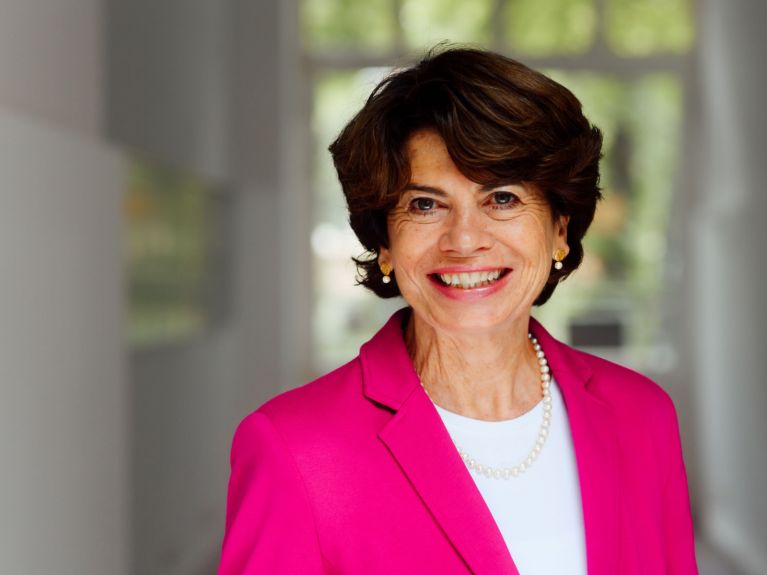“Bridge builders” between languages and cultures
Linguist Claudia Maria Riehl sees enormous benefits in the fact that German society is becoming increasingly multilingual.

Linguist Claudia Maria Riehl of Ludwig Maximilian University in Munich does research focusing on multilingualism. She talks about how widespread this is in Germany, what challenges it involves and how it can be further promoted.
Professor Riehl, how multilingual is Germany?
German society has changed significantly in two ways in recent decades. On the one hand, more and more people have a mother tongue other than German or grow up bilingually. In Munich, for example, only four percent of the population had a migrant background in 1950; today this figure is almost 50 percent. In addition, more and more native speakers of German have at least a good level of oral proficiency in English.
What challenges does this pose for the education system?
School classes are becoming increasingly heterogeneous. This means that more needs to be done to promote German language proficiency among the many children with a migrant background. But multilingualism needs to be promoted among all children as well. So we should intensify and expand the teaching of foreign languages. This also means that in terms of foreign languages, we shouldn’t only be offering English, which is the global lingua franca anyway.
What opportunities does multilingualism provide?
It offers enormous added benefits for each individual. But people who speak more than one language can also serve society at large as bridge builders and mediators. This is an advantage we shouldn’t underestimate in a globalised world. After all, language proficiency also involves cultural expertise. Last but not least, Germany stands to benefit economically if companies have multilingual staff.
How important is the mother-tongue instruction offered at many schools throughout Germany?}
It’s absolutely vital. Without the opportunity to learn how to express themselves in writing in their mother tongue, children growing up multilingually would remain monolingual in terms of their writing skills. This would be a waste of economic potential, too. What is more, studies show that mother-tongue instruction has a positive impact on children’s proficiency in German.
How is it possible to promote multilingualism among all pupils?
One possibility here is so-called language-sensitive teaching. This involves use of the pupils’ various mother tongues in subjects such as maths, physics and history, for example, by deriving technical terms from these other languages. There are also multilingual educational programmes that can serve as role models. For example there areEuropean schools throughout Germany that offer bilingual teaching up to the school-leaving certificate. Here again, the focus is not just on language but on understanding other cultures, too – something that is almost more important in our multicultural society.


